The Image of African Americans in the media has always been a cause of concern both inside and outside the African American Community. Older generations of African Americans have long been mindful (some would say overly so) with the way the rest of the world perceives us. It is believed that we have the most to lose from negative portrayals in the media, and the most to gain from positive images.
Image conscious African Americans had their beliefs validated, to an extent, with the election of President Barack Obama as leader of the free world. An articulate, intelligent, well groomed and seemingly moral African American male had achieved the highest office in the land. Surely, this had to be a sign that the Black male image in America had reached a turning point. It signified the dawn of a new era, a “post-racial” America.
If only it were so simple.
2009 was the year of the Black Icon. Never before had images of prominent and successful African Americans permeated the media to such an extent. The dominant image of African Americans in 2009 was that of a people who had in many regards achieved the recognition and success they had always craved, and got a crash course in the harsh realities and consequences that go hand in hand with that success.
Your every move is scrutinized beyond reason and logic. Your successes go relatively unnoticed and your failures are exaggerated. You will be persecuted in life, only to be vindicated and celebrated in death. You are not allowed to be human, or merely exceptional. You are expected to be nothing less than godlike.
 Surely, if there is one African American that understands those truths all too well, it is President Barack Obama. The first year of his presidency has been a virtual roller coaster ride. He has endured amazing amounts of scrutiny from both the right and the left. Sometimes this scrutiny reached absurd and even comical proportions, such as when the swatting of an insect becomes national news.
Surely, if there is one African American that understands those truths all too well, it is President Barack Obama. The first year of his presidency has been a virtual roller coaster ride. He has endured amazing amounts of scrutiny from both the right and the left. Sometimes this scrutiny reached absurd and even comical proportions, such as when the swatting of an insect becomes national news.
A perfect example was the media reaction to his response to the arrest of Harvard University professor Henry Louis Gates, Jr.. The President criticized the conduct of the Boston police officers involved only to later modify his statement. This drew criticism from those who felt that his initial reaction was the right one. Obama later invited Professor Gates and the arresting officer, Cambridge Police Sgt. James Crowley, to the White House to discuss the situation over beers. This was a curious move that showed a surprisingly human side to the President. Yet and still, it wasn’t enough to silence his critics.
Even more disturbing however, is how gun toting “protesters” were allowed to gather outside of a convention center in Phoenix, Arizona where the President was giving a speech. The response from local authorities was blasé to say the least. It was also a sobering reminder that we are still very far off from a post racial America. That extremists brandishing weapons would be allowed in such close proximity to our President speaks volumes. It would seem that Black Icons are not valued to the same extent as their white counter parts, and that positive imagery is not nearly enough to quell the hatred that continues to fester in the hearts of many Americans.
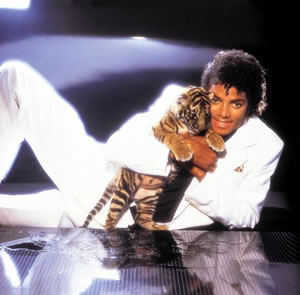 2009 was also the year that we saw one of our greatest icons, arguably the greatest entertainer in the history of American pop music, die at the relatively young age of 50. Michael Joseph Jackson died on June 25th after suffering cardiac arrest at his home in Holmby Hills, Los Angeles California. His heart attack was reportedly brought on by a combination of drugs in his system. There is currently a manslaughter investigation of his personal physician pending.
2009 was also the year that we saw one of our greatest icons, arguably the greatest entertainer in the history of American pop music, die at the relatively young age of 50. Michael Joseph Jackson died on June 25th after suffering cardiac arrest at his home in Holmby Hills, Los Angeles California. His heart attack was reportedly brought on by a combination of drugs in his system. There is currently a manslaughter investigation of his personal physician pending.
Michael Jackson’s popularity and impact on pop culture is well documented and cannot be emphasized enough. Thriller (1982) is the biggest selling album in pop music history. His stage performance had to be seen to be believed. He executed dance moves with a fluency ease of movement that seemed otherworldly. Though subsequent albums Bad (1987) and Dangerous (1991) failed to reach the unattainable sales of Thriller, they were still huge sellers in their own right.
Allegations of child molestation tarnished Jackson’s image and decreased his popularity considerably. Jackson’s perceived weirdness and eccentricities fueled the general public’s willingness to accept his alleged pedophilia as a matter of fact. Even then, his indelible image remained a pop culture mainstay, influencing countless musical performers for generations to come.
His death, and the public response to it, served as a reminder of the cliché that great artists are not fully recognized or appreciated until their death. In Michael’s case, his talents were appreciated in life, though not nearly enough considering the sheer magnitude and reach of those talents. Michael was one of a kind. His death caused us not only to reevaluate his life and legacy, but to reevaluate our own tendency to believe the worst about the stars we claim to love. Michael Jackson’s life and death embodied the love/hate dynamic that exists for all Icons, both black and white.
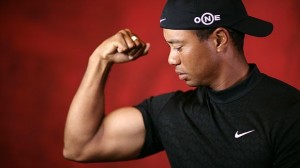 The downfall of Tiger Woods was an abject lesson of the moral fallibility of Black Icons, and how that fallibility can have dire consequences for one’s career and public standing. He cheated on his spouse with multiple partners throughout their marriage. There are more than enough studies and polls that show that marital infidelity is and always has been common occurrence in American society. This is not to excuse his actions, but to say that our collective outrage over Tiger’s indiscretions seems a bit forced, phony and overdone.
The downfall of Tiger Woods was an abject lesson of the moral fallibility of Black Icons, and how that fallibility can have dire consequences for one’s career and public standing. He cheated on his spouse with multiple partners throughout their marriage. There are more than enough studies and polls that show that marital infidelity is and always has been common occurrence in American society. This is not to excuse his actions, but to say that our collective outrage over Tiger’s indiscretions seems a bit forced, phony and overdone.
Exceptional abilities on the putting green do not necessarily translate to being morally beyond reproach. The same goes for anyone else of considerable talent and ability. That we expect more from Tiger than we do from ourselves speaks to our own contradictory and envious nature regarding our Icons. We characterize the media’s ungodly level of scrutiny as the price of fame and success. As Tiger’s endorsements wither away and his public presence diminishes, the sport of golf will see it’s popularity plummet. 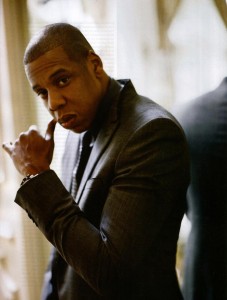
Last but not least is Shawn Carter aka Jay-Z. 2009 solidified Jay-Z’s status as the Hip-Hop Icon of our time (Lil’ Wayne’s immense popularity and sales notwithstanding). Jay has enjoyed a level of sustained popularity throughout the 90’s and 2000’s that stands in contrast to the faddish and trendy nature of rap music. Even the biggest stars in Rap have a considerably short shelf life.
Not Jay-Z, who solidified his longevity by scoring his 11th straight number one album on the pop charts (The Blueprint 3) and his first number single as lead performer (Empire State of Mind). 2009 was the year that Mr. Carter truly became a pop star (though the argument could be made that he has been pop ever since Volume 2: Hard Knock Life scanned 5 million copies in 1998 and 1999). He is one of the only rap artists able to sell platinum in a matter of weeks in today’s marketplace.
Simultaneously, Jay has been the target of many former associates and fellow rappers. From Baby questioning Jay’s status as the “Hottest Rapper” to everyone from Gucci Mane to 50 Cent taking endless shots at Jay via interviews and songs. Surely the biggest blow to Jay’s image this year has been his public falling out with former protégé Beanie Sigel. Beanie has given countless interviews regarding shady business dealings on the part of both Jay-Z and Dame Dash. He even went so far as to record a diss record. 50 Cent was all too happy to fan the flames of this “beef” given his long standing and vocal rivalry with Jay.
The message is clear: Black icons are always subject to attack from both without and within. Everyone wants the crown. The critiques pile up at such a prodigious rate that it becomes very hard to discern truth from fiction. Are Beanies claims justified and supported by fact? Is this all a result of misunderstanding and miscommunication?
At the close of this year of 2009, the image of African Americans is that of a people that have broken through considerable barriers and attained positions that would have been unthinkable to past generations. We marvel at these achievements, and bite our nails anxiously, praying that these brothers did not squander the opportunities they have been given and ruin the chances of others who wish to follow in their footsteps. We also learned that such achievements do not instantly change the way we are perceived by outsiders and those who wish to impede our progress. They will dog our every step and use any shortcoming to their advantage. No amount of money or popularity will be enough to evade them.
Now that we have the keys, we must learn to drive the car. We should use these newly attainted positions to not only control the way we are represented, but to emphasize the fact that no one, regardless of race, intelligence or talent is beyond reproach. Even the best of us are only human, and we should learn to adjust our expectations of our stars and leaders accordingly.
In 2009, the “Black Image” looms larger then ever on the world stage. That image is more complex and multi faceted than any of us have ever realized. It is time to appreciate that complexity and let it shine in all its glory. We fought so long for the reins. It is now time to take control. All we’ve got is us.
Follow Malice Intended on Twitter @ http://twitter.com/renaissance1977
Follow Us on Twitter @ http://twitter.com/planetill
Join Us on the Planet Ill Facebook Group for more discussion
Check out Planet Ill’s page on Essence.com
Follow us on Networked Blogs

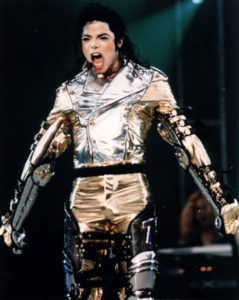



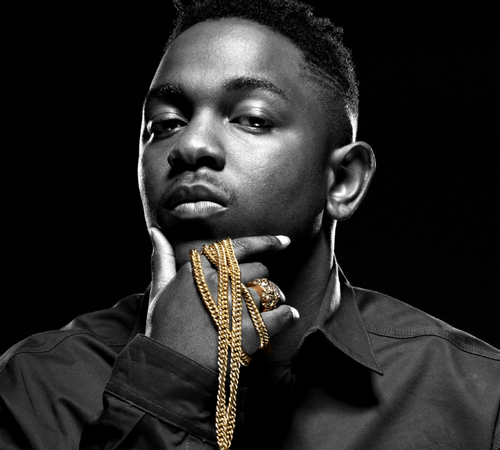
This was definitely a thought provoking and insightful piece. It seems that there is no peace for anyone who achieves the level of fame that they have.